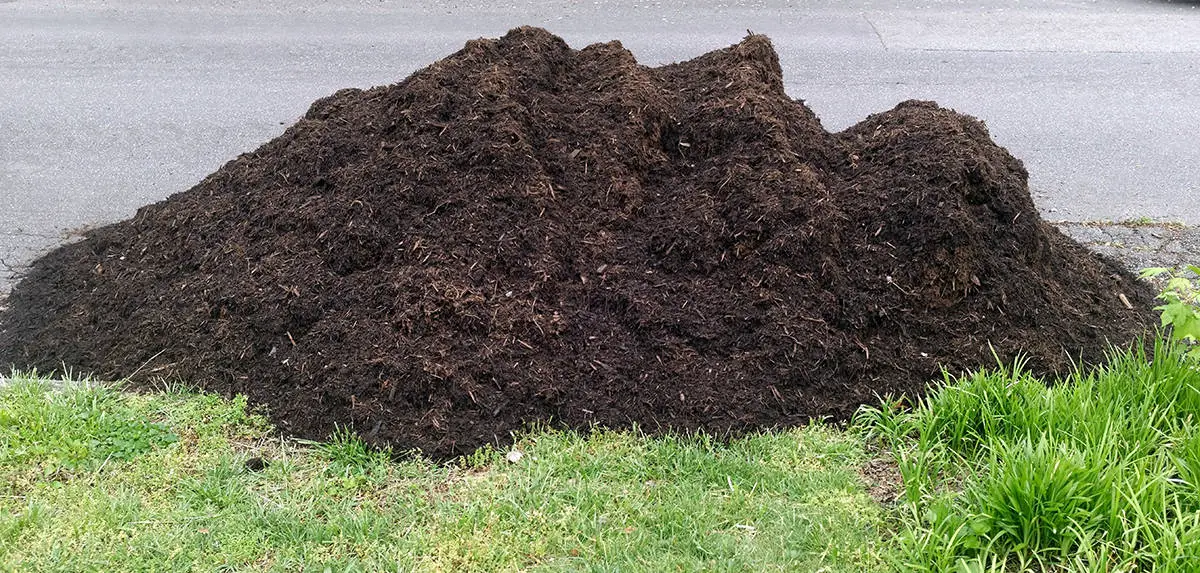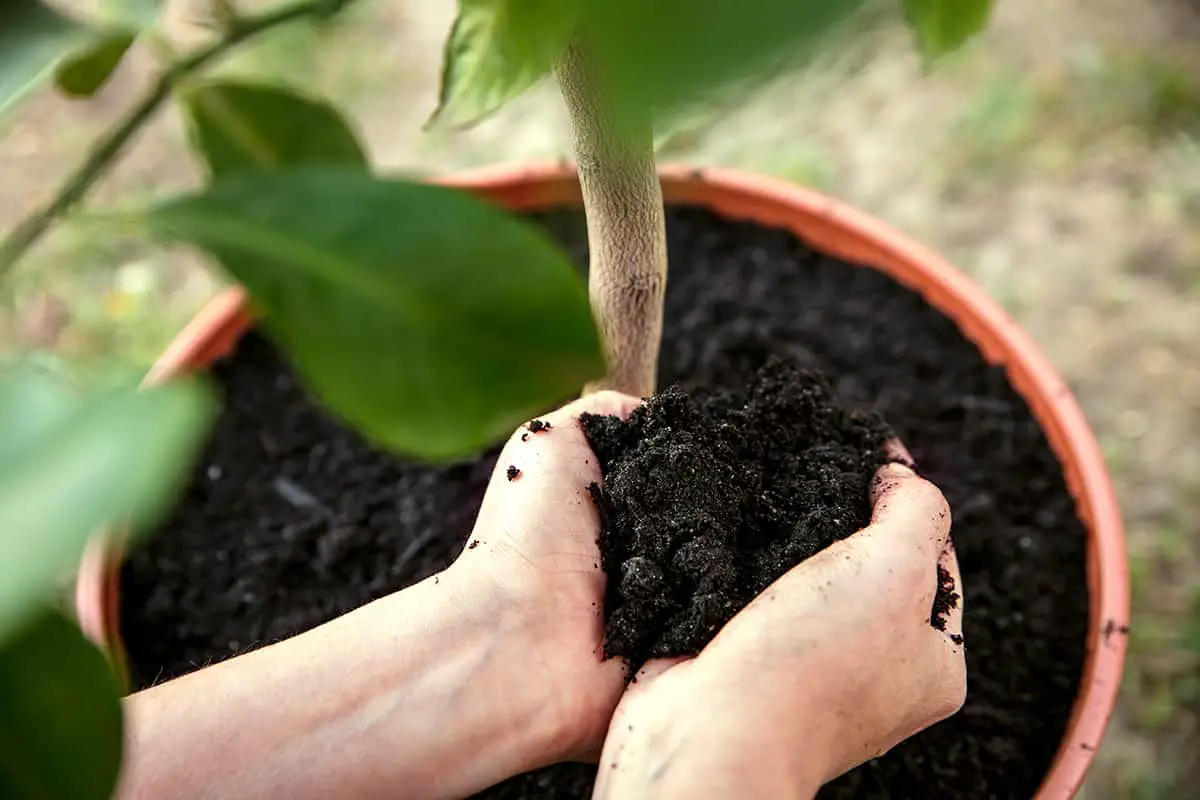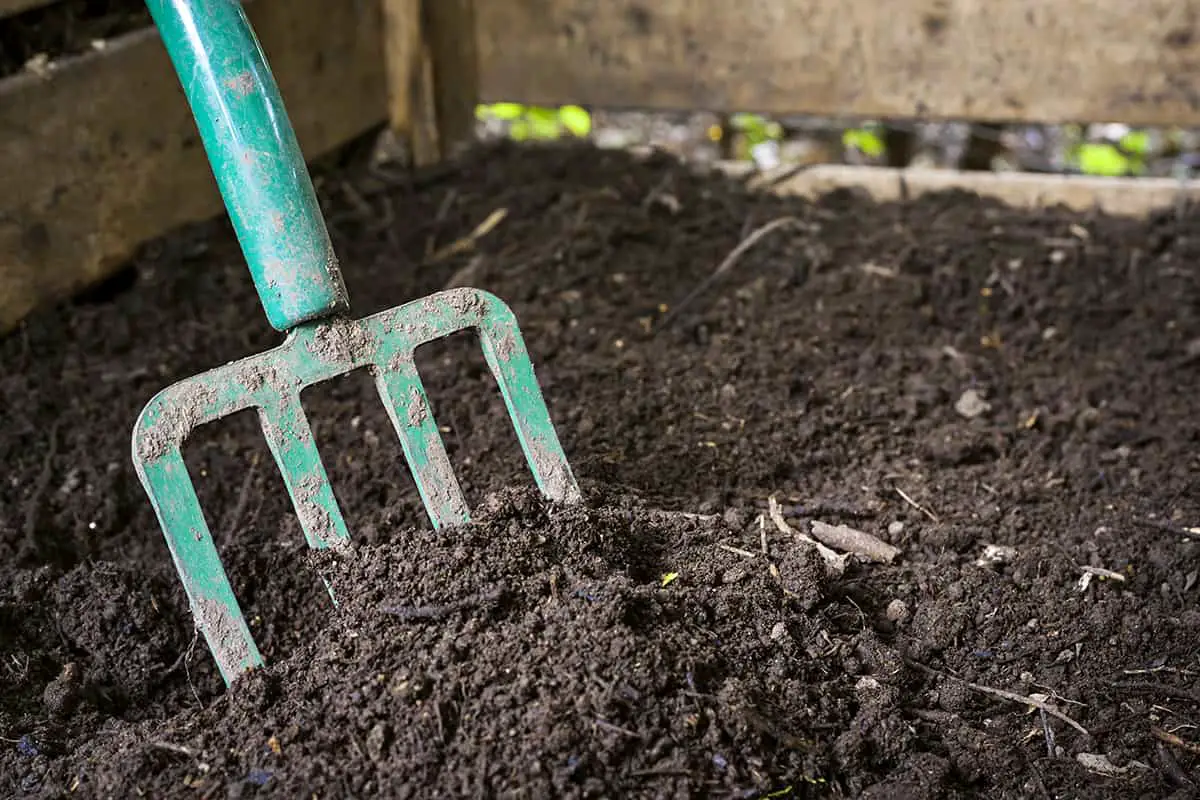Compost is an important element in organic gardening and landscaping as it provides a nutrient-rich soil for plants to grow in. It is created by breaking down organic materials, like leftover food and yard waste, to create a healthy environment for your plants to flourish. If you need to bring a yard of compost to your backyard, how much will it weigh?
A yard of compost can vary, but on average, it weighs approximately 1,000 to 1,600 pounds. The exact weight depends on factors such as moisture content, the density of the compost, and the type of materials used in the composting process.
In this article, we will take a closer look at what affects the weight of compost and the advantages of using it in your garden. Additionally, we will also answer some of the frequently asked questions about compost and its usage to help you better understand this valuable soil amendment.
Table of Contents
Factors Affecting Compost Weight
So, we’ve learned that a yard or cubic yard (27 cubic feet) of compost has a wide weight variance. Here, we’re going to see what factors affect compost weight.
1. Moisture content
The moisture content in compost is a significant factor that affects its weight. Compost with high moisture content will weigh more than compost allowed to dry out. The ideal moisture level for compost is around 40-60%. If the moisture content is too high or too low, it can adversely affect the composting process and the final product.
2. Density
The density of compost is another factor that contributes to its weight. With much organic matter packed closely together, dense compost will weigh more than loose, fluffy compost. The density of your compost depends on the types of materials used in the composting process and how well they have decomposed.
3. Compost materials
Different materials used in composting can impact its weight. For example, compost that includes a lot of heavy, dense materials such as wood chips, will weigh more than compost made primarily of lighter materials like leaves and grass clippings.
Price for a Yard of Compost

The cost of a yard of compost can vary depending on factors such as the quality of the compost, the supplier, and your location. On average, a yard of compost costs between $25 and $50, with higher-quality or specialty composts potentially costing more.
Keep in mind that bulk purchases or delivery fees may also influence the final price. To find the best deal, it’s recommended to research local suppliers, garden centers, or landscape supply companies and compare prices and quality.
Why You Should Use Compost in Your Garden
For those who are still determining whether compost is the right choice, take a look at these proven benefits.
1. Improved soil structure
One of the main benefits of using compost in your garden is improved soil structure. Compost helps to create loose, well-aerated soil that allows for better water infiltration and root growth. This improved soil structure is essential for healthy plant growth and development.
2. Enhanced nutrient availability
Compost is rich in essential nutrients that plants need for growth. Incorporating compost into your garden provides a slow-release source of vital nutrients like nitrogen, phosphorus, and potassium. This can help reduce the need for chemical fertilizers and promote a more sustainable gardening approach.
3. Increased soil microbial activity

Healthy soil is teeming with beneficial microorganisms that play a vital role in cycling nutrients and improving plant health. Adding compost to your garden helps increase the population of these helpful microbes, which can improve overall soil health and plant growth.
4. Pest and disease resistance
Compost can help plants become more resistant to pests and diseases by providing the necessary nutrients and improving soil structure. Stronger, healthier plants are less susceptible to damage from insects and pathogens, reducing the need for chemical pesticides and fungicides.
FAQs
1. What materials can I compost?
There are many organic materials that can be composted, such as the leftovers from fruits and vegetables, eggshells, coffee grounds, used tea bags, grass clippings, leaves, small tree branches, and wood chips. However, it’s important to avoid composting meat, dairy products, and foods with high oil content as they can attract pests and produce unpleasant odors.
2. How much time does it take to create compost?
The time it takes to make compost can vary greatly, from a few weeks to over a year, depending on factors like the size of the compost pile, the materials used, and environmental conditions. However, you can speed up the process by regularly turning the pile, keeping the moisture levels in check, and balancing the ratio of carbon and nitrogen-rich materials.
To create a full yard of compost, it can take anywhere from 2 to over 12 months. But, if you manage your compost pile actively by turning it regularly, controlling moisture, and ensuring the right mix of carbon and nitrogen-rich materials, you can make a yard of compost in just 2 to 3 months. In this scenario, using the hot composting method, where high temperatures help to quicken the decomposition process, can be very helpful.
3. Can I use compost as mulch?
Yes, compost can be used as a mulch to help conserve moisture, suppress weeds, and regulate soil temperature. However, it is essential to note that compost is a more nutrient-rich material than traditional mulches like wood chips, so it can also provide additional benefits regarding soil fertility and plant health.
4. How do I know when my compost is ready to use?
Finished compost should be dark, crumbly, and have an earthy smell. It should not resemble the original materials used and should be cool. If you’re unsure whether your compost is ready, you can perform a simple “bag test” by placing a handful of compost in a sealed plastic bag and leaving it for a few days. If the compost smells sour or rotten when you open the bag, it needs more time to decompose.
5. Can I use compost for container gardening?
Absolutely! Compost is an excellent addition to potting mixes for container gardening. By incorporating compost into your potting mix, you can provide essential nutrients and improve the overall structure of the growing medium, promoting healthier plant growth.
